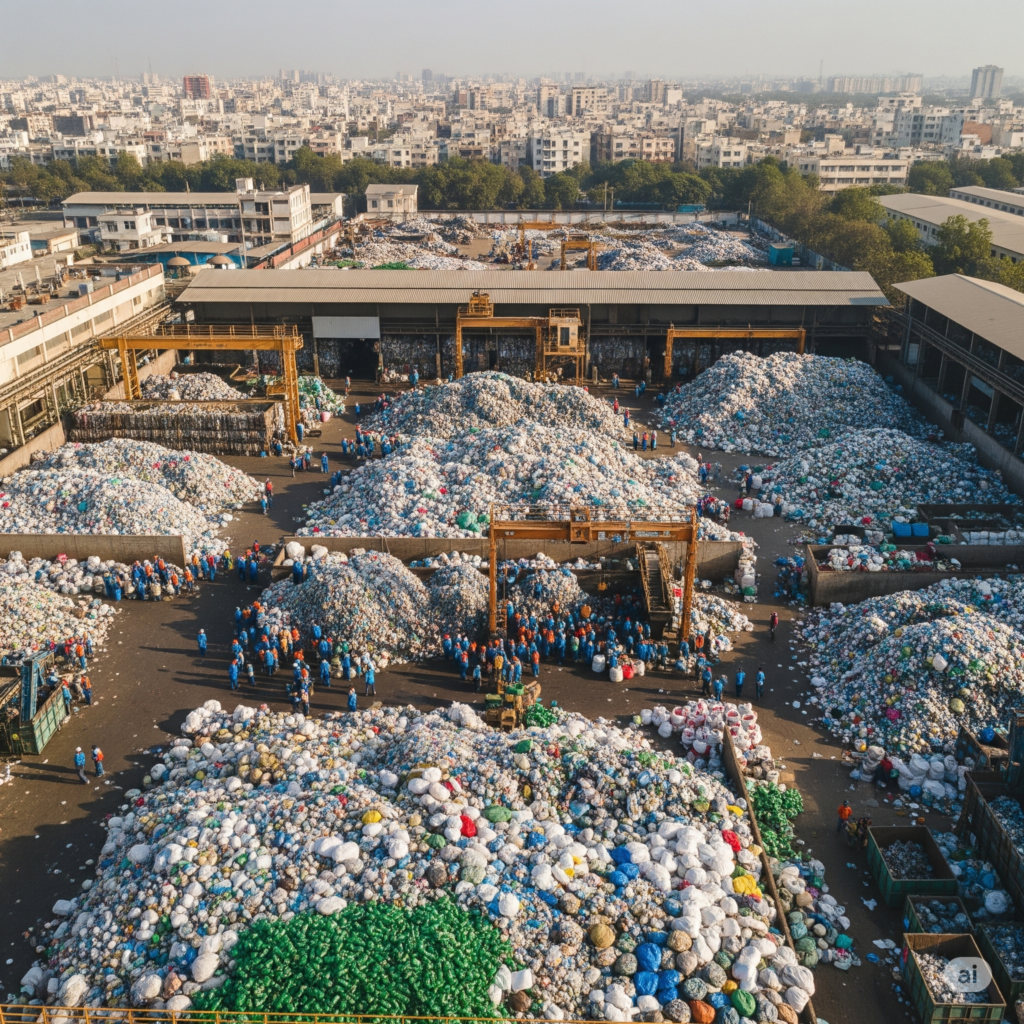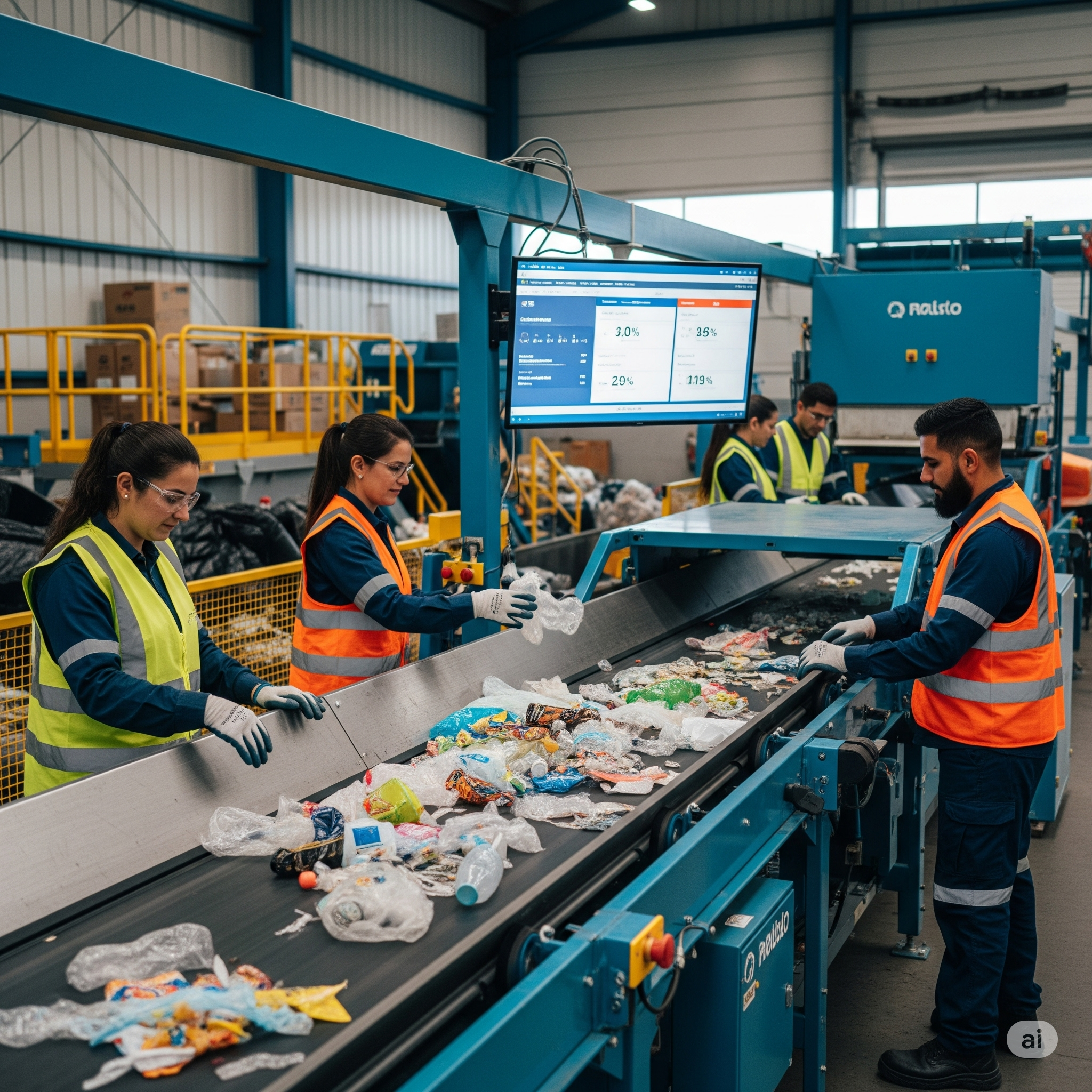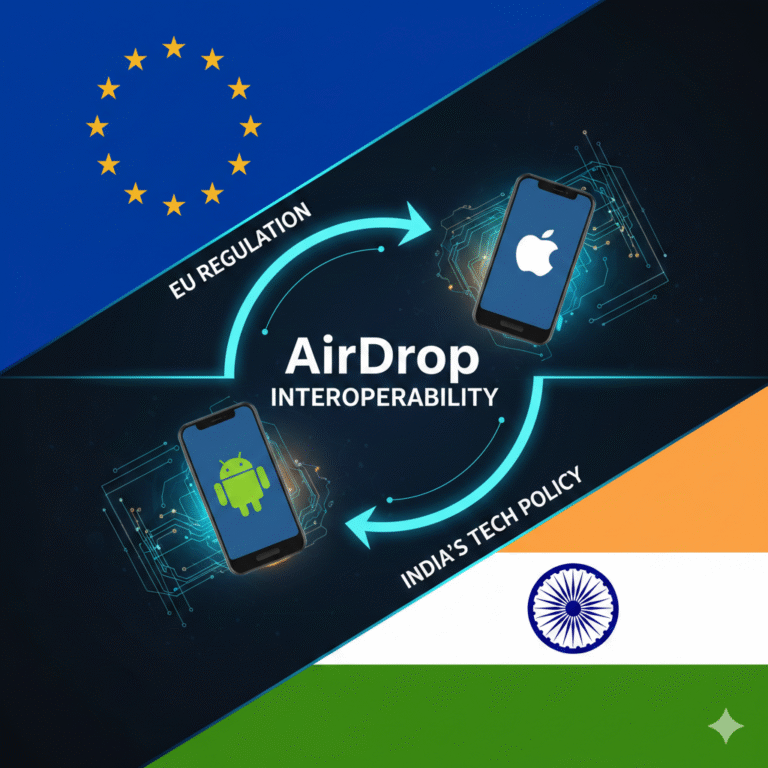Key Takeaways:
- Strong municipal governance is crucial for managing plastic waste effectively.
- Global case studies offer successful models for urban waste systems.
- Indian cities show innovation but also face serious execution challenges.
- Policy, infrastructure, and citizen participation must work in synergy.
- Technology and public-private partnerships are vital for scaling efforts.
Why Plastic Waste Is a Municipal Challenge
Plastic pollution is one of the most visible and pressing environmental challenges of our time. With more than 300 million tons of plastic produced globally each year, a significant proportion ends up in landfills, rivers, and oceans. In urban centers—where consumption is high and space is limited—managing plastic waste is a test of not just resources but also governance.
Effective plastic waste management depends not only on technology or public awareness, but also on the administrative backbone of cities: municipal governance. Cities around the world offer both best-practice models and cautionary tales, demonstrating how leadership, planning, and accountability make or break plastic waste strategies.
The Scope of the Plastic Waste Problem
Globally, the world generates over 400 million tons of plastic waste each year, of which only 9% is recycled. India alone produces nearly 3.5 million metric tons of plastic waste annually, and the number is increasing rapidly with urban expansion and changing consumer habits.
Plastic waste, particularly single-use plastics, poses multiple risks:
- Environmental: Marine and terrestrial ecosystems suffer from microplastic pollution.
- Health: Open burning and toxic leachates can cause respiratory and hormonal issues.
- Economic: Poor waste management affects tourism, fisheries, and public infrastructure.
Role of Municipal Governance in Waste Management
Municipal bodies are the first line of defense when it comes to plastic waste. Their responsibilities typically include:
- Collection and segregation
- Transportation and storage
- Sanitary landfilling or recycling
- Enforcement of regulations
Key enablers of successful municipal waste management:
- Strong urban planning and data systems.
- Adequate funding and human resources.
- Clear accountability and transparency mechanisms.
- Integration of informal waste workers into formal systems.
Global Best Practices: What Cities Are Doing Right
San Francisco, USA: With a goal to become zero-waste by 2030, San Francisco has a mandatory composting and recycling policy, supported by citizen education and consistent enforcement.
Seoul, South Korea: Known for its RFID waste tracking and smart bins, Seoul combines high-tech monitoring with citizen participation to ensure plastic is separated and recycled efficiently.
Ljubljana, Slovenia: The first zero-waste capital in Europe, Ljubljana has achieved over 60% recycling rates through decentralized waste collection and strong community involvement.
The Indian Context: Progress and Pitfalls

India’s Swachh Bharat Mission and Plastic Waste Management Rules (2016, amended in 2022) have brought focus to the issue. Cities like Indore and Surat stand out as models:
- Indore: Ranked India’s cleanest city, it has 100% door-to-door collection and segregates waste at source.
- Pune: Uses cooperative models involving informal waste pickers (SWaCH) to improve plastic recovery.
However, challenges persist:
- Lack of segregation at source in many cities.
- Inconsistent policy implementation across states.
- Over-reliance on landfilling and burning.
- Low investment in recycling infrastructure.
Importance of Technology and Innovation
Cities can’t solve plastic waste problems without embracing innovation:
- IoT devices for monitoring bins and collection routes.
- AI-based sorting systems in recycling centers.
- Plastic-to-fuel or plastic bricks for road construction.
- Digital platforms to track Extended Producer Responsibility (EPR).
Public-private partnerships and startup ecosystems are proving essential to scale these innovations.
Community Engagement and Citizen Participation
Citizens play a vital role in successful waste segregation and recycling:
- Awareness campaigns like “Alag Karo” in Delhi have seen measurable success.
- School-level education and behavioral nudges (e.g., rewards) improve compliance.
- Waste audits and apps help track plastic consumption at the household level.
Cities that treat their residents as partners—not just users—see better outcomes.
Policy Recommendations and the Road Ahead
To create sustainable, scalable models for plastic waste management:
- Strengthen urban local bodies with more autonomy and resources.
- Standardize waste data collection and reporting across cities.
- Incentivize segregation at source with tax breaks or rebates.
- Invest in capacity-building programs for municipal staff.
- Make EPR enforcement more accountable and transparent.
Conclusion: Governance Is the Glue That Holds It Together
Whether in San Francisco or Surat, plastic waste management is not just a technological or behavioral issue—it’s fundamentally a governance challenge. When cities lead with vision, accountability, and public engagement, they create the foundation for cleaner, healthier, and more sustainable urban environments.
In the fight against plastic waste, strong municipal governance isn’t optional—it’s essential.










+ There are no comments
Add yours